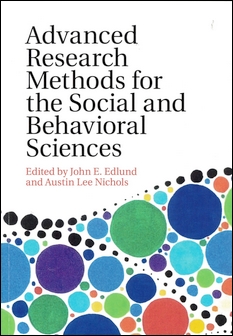書籍分類

Advanced Research Methods for the Social and Behavioral Sciences
作者:Johb E. Edlund, Austin Lee Niichols
原價:NT$ 1,400
ISBN:9781108441919
版次:1
年份:2019
出版商:Cambridge University
頁數/規格:388頁/平裝單色
參考網頁:Advanced Research Methods for the Social and Behavioral Sciences
版次:1
年份:2019
出版商:Cambridge University
頁數/規格:388頁/平裝單色
參考網頁:Advanced Research Methods for the Social and Behavioral Sciences
內容介紹 目錄 作者介紹
- Description
- A research methods volume written for advanced undergraduate students, graduate students, and those who already have a Ph.D. across the social and behavioral sciences
- Contains contributors that span the social and behavioral sciences to allow for a better understanding of performing research within and across multiple disciplines
- Supplies specific applications and tools to use in applying each method
Written by an interdisciplinary team of global experts covering diverse research methods - including research design, research tools, and statistical techniques - this volume focuses on advanced research methods for anyone working in the social and behavioral sciences. The information needed to perform research in the laboratory, the field, or online is mapped out to provide specific applications and tools in applying each method. The issues surrounding reliability, validity, and obtaining consent are explained alongside detailed descriptions of the impact of pre-knowledge on participant behavior, the ways that researchers unintentionally influence participants, and tips on administering suspicion probes and debriefings. The book then lays out bio-physiological measures, eye-tracking methods and technologies, the construction of questionnaires, and reaction-time methodologies without assuming too much prior knowledge. The basics of Bayesian analysis, item response analysis, social network analysis, and meta-analysis are also summarised as the editors combine innovative methods and statistics to showcase how to perform quality research.







